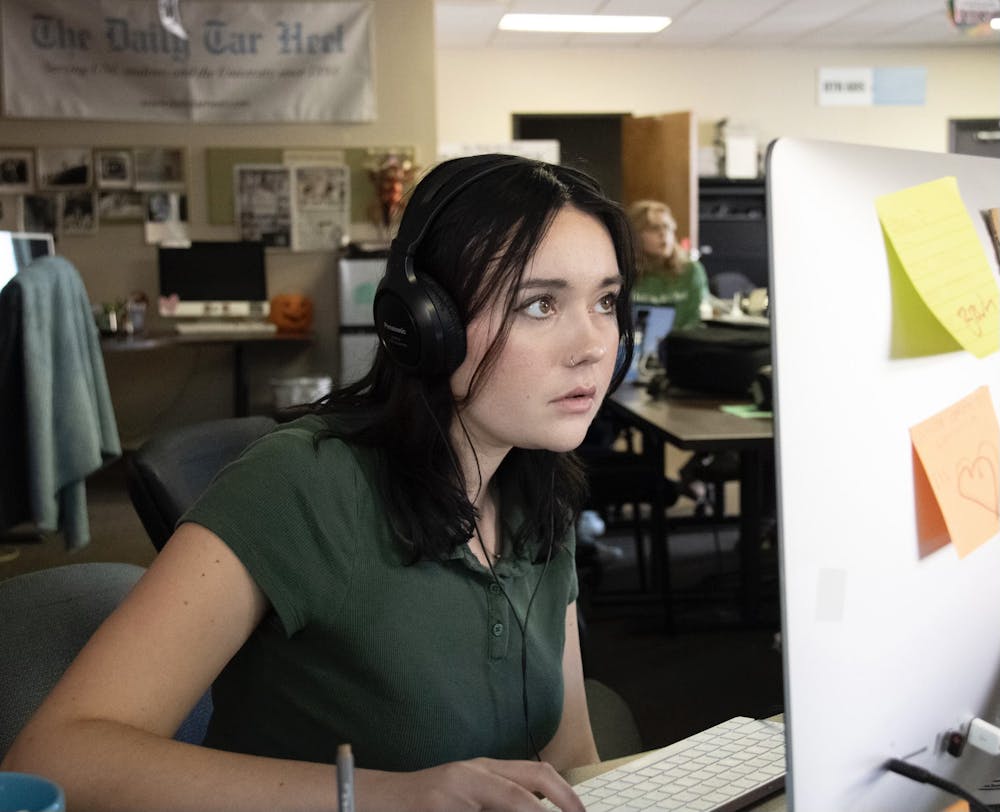Lack of diversity is a huge issue at the DTH, inside our newsroom and within our coverage. Our third internal DEI audit found that 67 percent of the staff is white, which is approximately 12 percent higher than the percentage of white students at the University.
These statistics illuminate that the DTH has yet to do its part to foster a diverse and inclusive environment that mirrors the community we represent. As EIC, I would take a proactive role in promoting a more equitable hiring process.
At the beginning of each semester, I would reach out to the Carolina Association of Black Journalists, UNC’s chapter of the National Association of Hispanic Journalists, NLGJA: The National Association of LGBTQ+ Journalists and other minority organizations on campus to share our hiring application with them.
However, we cannot expect students of diverse backgrounds to apply to the DTH if our coverage does not accurately represent them.
I’ve noticed that our newsroom has not made regular use of the source audit, which is supposed to help us quantify how many sources included in our stories are from underrepresented backgrounds.
As EIC, I would require staffers to fill out the source audit after every story. Making the source audit an optional task that editors can fill out in their own time hasn’t yielded any significant change, and we need reliable statistics to make informed changes to our coverage.
Additionally, I want the community to hold us accountable for our diversion and inclusion efforts. Once a month, I would host a community forum where members of the public can raise questions and concerns about our coverage to the EIC and DEI coordinator.
Expanding our enterprise team
The DTH is adept at covering local happenings, but we rarely break news. As EIC, I want to see our organization tackle long-term investigations and break more stories. This requires an expansion of the enterprise team.
Currently, the DTH has one enterprise managing editor. This puts a lot of strain on one person to plan investigative projects, assign tasks to reporters, file record requests and break news. I propose adding two other enterprise editors to the newsroom, creating an investigative task force.
The enterprise managing editor should still pilot the investigation, while the two assistant enterprise managing editors can handle assigning reporters to stories and filing any record requests.
Creating multimedia requirements for desks
To get the day's news and headlines in your inbox each morning, sign up for our email newsletters.
In the coming years, the DTH will inevitably cease its print publication. When this day comes, our newsroom needs multiple channels of online distribution to secure a stable readership. I propose preparing for this transition by encouraging more multimedia collaborations between desks.
This will not only help us appeal to an increasingly online audience, but it will also welcome more aspiring multimedia journalists to the DTH.
As EIC, my goal is to expand our video content beyond our weekly shows and start covering news through a camera lens. I would encourage our University, City & State, Sports and Lifestyle desks to collaborate with our Audio Visual and Design desks on at least three multimedia stories a month.
These could take the form of video news packages, audio stories, interactive media or other methods of storytelling. This will diversify our content and help the DTH stand out as the leading college newspaper in the country.
@nataliebradin



